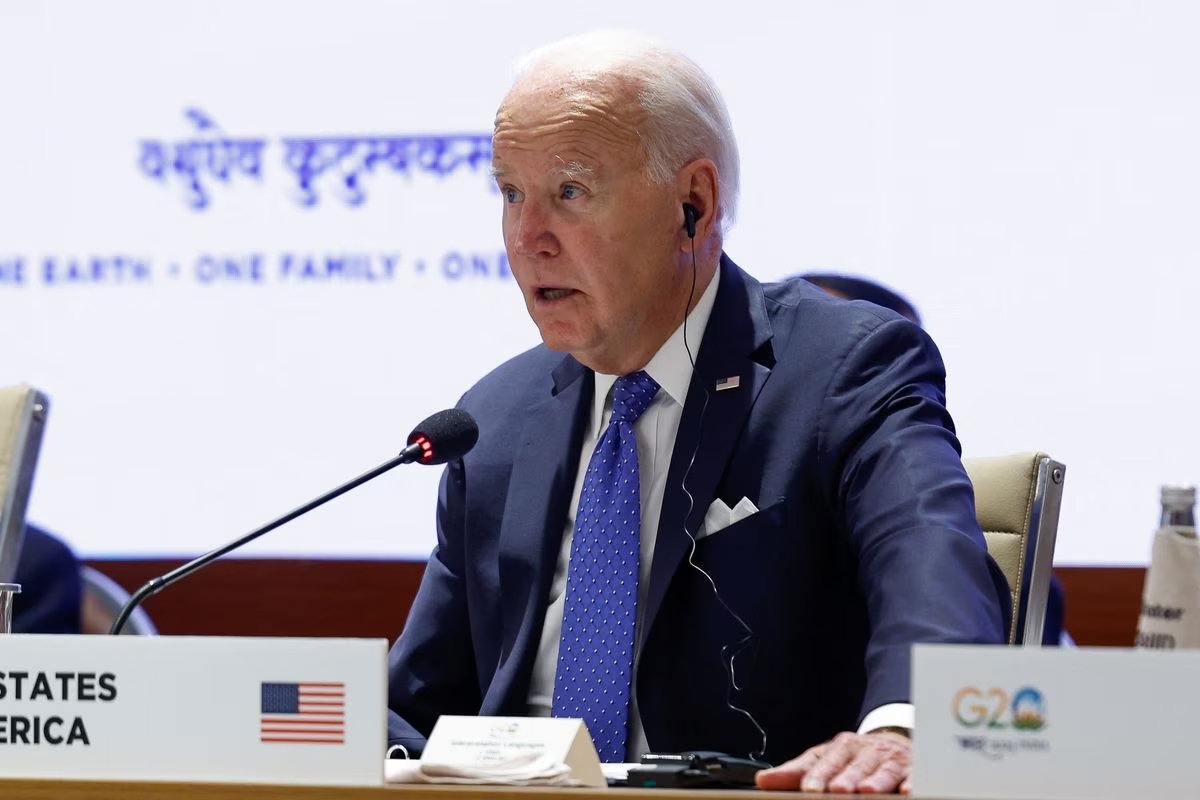U.S. President Joe Biden has disclosed that he engaged in the highest-level talks with Chinese leadership in nearly 10 months during the annual G20 summit held in New Delhi, Reuters reported. In these discussions, he met with Chinese Premier Li Qiang, who currently holds the position of Chinese President Xi Jinping's No.2. This encounter marks the most significant meeting between the United States and China since last year's G20 summit in Indonesia. Li, who assumed the role of premier in March, attended the gathering of world leaders on behalf of Xi. While it was not anticipated for the two leaders to hold formal talks at the G20, such unscripted encounters at summits are common.

Biden conveyed that the discussions were focused on stability and the Southern Hemisphere, emphasizing that they were not confrontational in nature. He noted that his team and staff continue to engage with President Xi's officials and cabinet.
Regarding the ongoing economic situation in China, Biden characterized it as a "crisis." He attributed this crisis to multiple factors, including a weak global economy and unspecified Chinese policies. Notably, he highlighted issues in the Chinese real estate sector and high youth unemployment. While he did not provide specific details about the policies in question, Biden did mention that one of the major economic tenets of President Xi's plan is not functioning effectively at the moment.
The U.S. president stated,
"I'm not happy for that, but it's not working,"
in reference to China's economic challenges. He acknowledged that President Xi currently has a full plate in addressing these issues. Biden emphasized that the U.S. economy is the "strongest" globally, contrasting China's economic slowdown with the robust performance of the United States.
Biden's remarks come as he faces concerns over his handling of the economy and rising inflation in the lead-up to the 2024 re-election campaign. He asserted that the United States, as a Pacific power, has no intentions of withdrawing from the region, underscoring the nation's commitment to the Asia-Pacific.
Regarding the situation in Taiwan, a subject of heightened international tensions, Biden expressed the view that China's economic challenges are unlikely to lead to an invasion of Taiwan. Instead, he suggested that China may not possess the same capacity it had before for such actions.
Biden also commented on recent efforts by Chinese officials to restrict the use of U.S.-designed Apple iPhones by state employees, interpreting these actions as an attempt to alter trade dynamics.
Throughout the discussions, Biden reiterated his commitment to improving the U.S.-China relationship, emphasizing his sincerity in seeking to strengthen ties between the two nations.
The U.S.-China relationship remains complex, with various economic, political, and security dimensions. Biden's efforts to maintain open lines of communication with China align with the broader objective of reducing tensions and addressing shared challenges.
Earlier Daryo reported that talks between President Biden and Prime Minister Modi have strengthened the relationship between the United States and India, focusing on regional issues, particularly the Indo-Pacific strategy, and enhancing economic cooperation.
Follow Daryo's official Instagram and Threads pages to keep up to date on world news.
Comments (0)